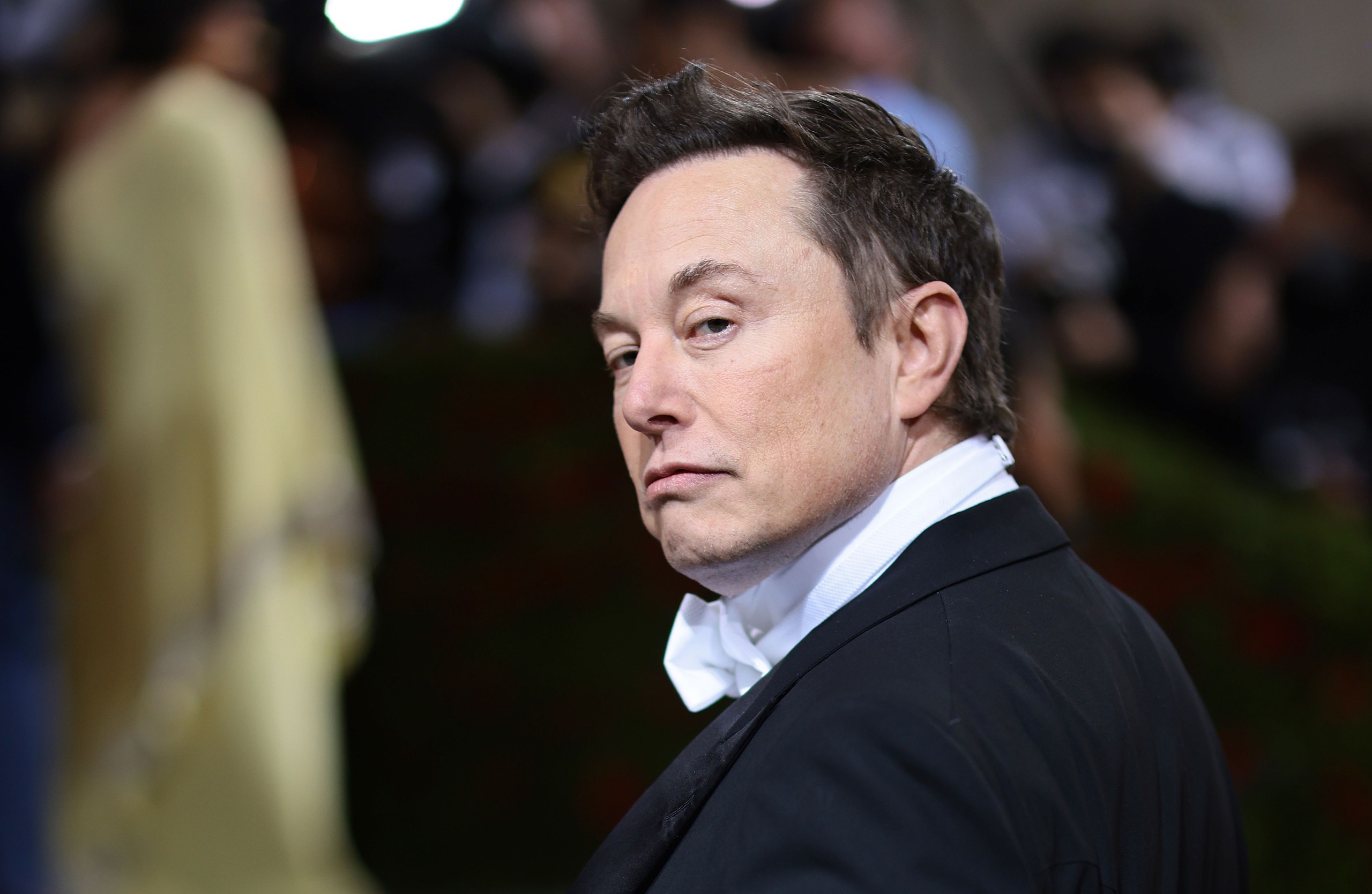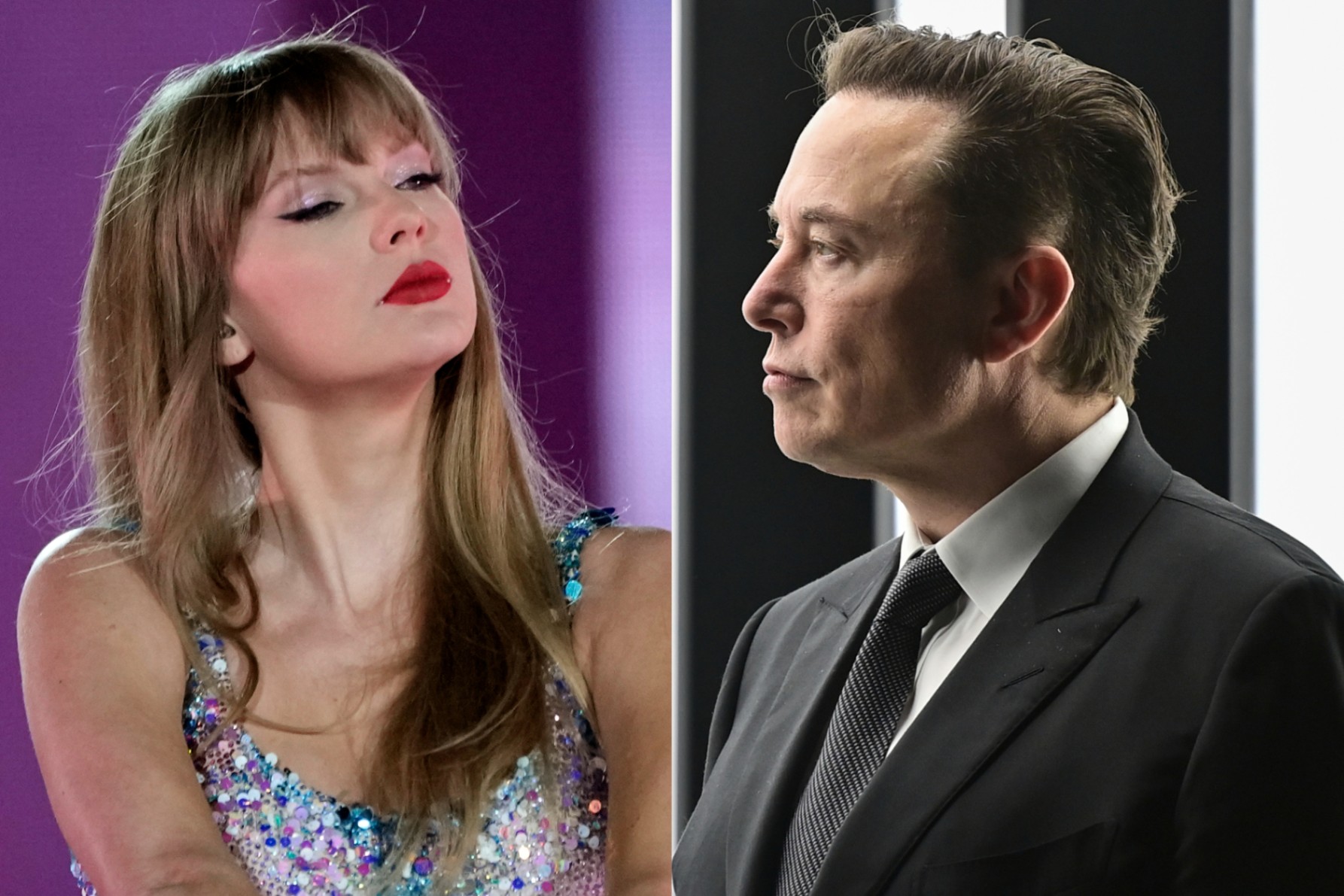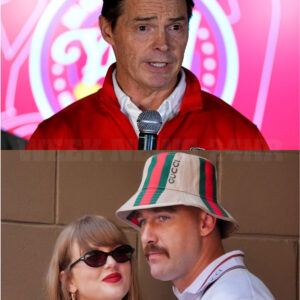In a recent social media post that sent shockwaves through both the entertainment and tech industries, Elon Musk, the billionaire entrepreneur and CEO of Tesla and SpaceX, launched a scathing critique of pop superstar Taylor Swift’s performaпсе during the Super Bowl halftime show. Musk’s controversial statement, comparing Swift’s artistry to “wastewater,” ignited a fierce debate among fans, critics, and industry insiders alike.
Musk, known for his provocative tweets and unfiltered opinions, expressed his dissatisfaction with Swift’s performance on Twitter, stating, “Honestly, it was so bland it’s not even equal to wastewater.” The comment quickly went viral, drawing responses from Swift’s loyal fanbase, known as “Swifties,” as well as various celebrities who defended the singer’s artistic contributions to music and culture.

Taylor Swift is widely recognized for her exceptional songwriting skills, powerful vocals, and ability to connect with audiences on a personal level. Her performances are characterized by elaborate stage setups, intricate choreography, and emotional storytelling. Swift has garnered numerous awards, including multiple Grammys, and her albums consistently top the charts. Despite this, Musk’s remarks suggested that he found her Super Bowl performance lacking in originality and impact.
Critics of Musk’s statement argue that comparing a live performance to wastewater is not only an extreme exaggeration but also an unfair assessment of an artist who has made significant contributions to contemporary music. Many pointed out that the Super Bowl halftime show is a high-pressure environment where artists have limited time to engage with a diverse audience. In such a setting, Swift’s established repertoire and ability to resonate with millions should not be undervalued.
Supporters of Musk’s viewpoint, however, suggested that the Super Bowl halftime show has become a platform for bold and innovative performances. They contend that artists should push the boundaries of creativity, and if a performance fails to do so, it deserves criticism. Musk’s supporters believe that his оріnіоn reflects a larger expectation from audiences for performances that challenge conventional norms.

The backlash against Musk’s comments was swift, with many social media users coming to Swift’s defense. Swifties rallied on various platforms, sharing clips of her most memorable performances and highlighting her artistic evolution over the years. Some fans pointed out that Swift has consistently used her platform to address important social issues, including gender equality and mental health, which adds depth to her artistry.
Moreover, many pointed out the irony of Musk, a figure often associated with innovation and forward-thinking, making such a regressive comparison. Critics highlighted that the world of entertainment thrives on diversity and varied artistic expressions, and every performance is an opportunity to celebrate creativity, even if it doesn’t align with one’s personal tastes.
In addition to the backlash, industry experts weighed in on the discourse. Music critic Sarah Williams remarked, “Musk’s comments reflect a misunderstanding of what performance art encompasses. It’s about more than just the music; it’s about the connection with the audience and the emotional journey.” Williams emphasized that Swift’s performances often touch on personal and societal themes, making them relevant and impactful.
As the debate raged on, it became evident that Musk’s comments, while polarizing, opened up a larger conversation about artistic expression and audience expectations in the music industry. The clash of opinions underscores the varied tastes and interpretations of performance art, highlighting the importance of constructive criticism rather than dismissive remarks.

In the end, this incident serves as a reminder of the power of social media in shaping public discourse and the responsibility that comes with it. As figures like Musk wield significant influence, their words can spark conversations that challenge the status quo. Ultimately, whether one agrees with Musk or stands firmly with Swift, the dialogue around performance, artistry, and audience engagement continues to evolve in fascinating ways.
As the Super Bowl and its iconic halftime shows remain cultural landmarks, the intersection of technology, celebrity, and public opinion will undoubtedly create more moments of intrigue, reflection, and, at times, controversy in the years to come.
News
Here’s What Elon Musk And His Family Typically Eat In A Day
A Glimpse into the Musk Family Dining Habits Elon Musk, the visionary behind Tesla and SpaceX, is known for his relentless work ethic and groundbreaking innovations. But what does the world’s richest man eat to fuel his extraordinary endeavors? And…
Billie Eilish Leaves US Because The Red Wave Is Too Strong, “I Can’t Live Here Anymore”
Billie Eilish, the globally renowned pop icon and Grammy-winning artist, has always been more than just her music. Her voice resonates not only through her hauntingly beautiful songs but also in her bold political statements. Recently, the shocking revelation that she has left the United…
Jennifer Lopez joined by hunky bodyguard in LA as she gets candid about ‘struggles’ after Ben Affleck split
Jennifer Lopez showcased her abs while out on a shopping trip after getting candid about being a mom who puts her ‘best foot forward’ still doesn’t stop her from being a ‘human being who struggles.’ The 55-year-old A-lister – who, along…
“I Definitely Hated It”: Aaron Rodgers Says He Regrets Hooking Up With All The Famous Women He Dated
Aaron Rodgers has made a statement on his past relationships that suggests he’s probably regretful. The New York Jets quarterback has dated some famous women since making the step up to the NFL but apparently did not enjoy the scrutiny that came with the territory….
Kansas City Chiefs President Forced To Address Rumors That Taylor Swift & Travis Kelce’s Relationship Is Just A “Marketing Strategy” For The Team
There’s a conspiracy theory for just about everything, including bizarre ones relating to the highly publicized relationship between Grammy Award-winning singer Taylor Swift and Kansas City Chiefs tight end Travis Kelce. The three-time Super Bowl champion has been in a relationship with Taylor…
Jennifer Garner’s Farm-Style Los Angeles Home: A Blend of Warmth and Functionality
Of her new home, Jennifer Garner notes, “I wanted it to feel old and cool and historic, but I also wanted to make it work for a big family with a lot of things going on.” The actor, who reprised…
End of content
No more pages to load











